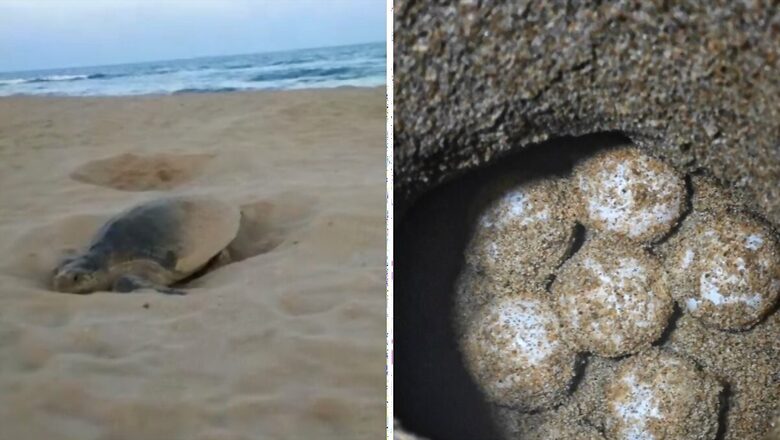
views
The Tamil Nadu government has taken the initiative to protect vulnerable Olive Ridley turtles as climate change continues to be a growing concern. IAS officer Supriya Sahu shared a post on X, formerly Twitter, showing images of climate-resilient hatcheries that collect temperature and heavy rainfall data. This data is then monitored by professionals.The state government has ordered to setting up of these climate-resilient turtle hatcheries at 10 places in 8 districts.
In her long post, Sahu mentioned a semi-permanent climate-resilient hatchery at Marakkanam in the Villupuram district where data loggers are being used for monitoring temperature and heavy rainfall, further adding that around 45 hatcheries have been set up in Tamil Nadu across nine districts “So far around 2 lakhs 20 thousand eggs have been safely collected. This is also the highest number of eggs collected ever. Forest dept staff and volunteers are doing their best to safeguard nesting turtles and safely release baby turtles back to the sea,” the post added.
Olive Ridley nesting season in Tamil Nadu is special this year. In a pioneering initiative Govt of Tamil Nadu has issued orders to set up first ever Climate Resilient turtle hatcheries in the wake of Climate change impact at 10 places in 8 districts. At Marakkanam in Villupuram… pic.twitter.com/fi3KEWvNZZ— Supriya Sahu IAS (@supriyasahuias) March 13, 2024
In additional tweets, Sahu also added details about other hatcheries including one in the Pichavaram range of Cuddalore division at MGR Thittu in Vellar sea shore area where 2,000 hatchings have been released so far.
Other ones are in the Nagapattinam division at Koozhaiyar and Kottaimedu beach area in Mayiladuthurai district and in the Tirunelveli division at the Paanchal beach area. All the sites are regularly monitored.
Notably, the hatcheries have been set up as a part of a larger effort within the Tamil Nadu Coastal Restoration Mission, which aims to reach out to 35 local villages for training and capacity building. Further, the main goal is also to spread awareness and empower fishermen and local communities regarding the importance of conserving marine life, especially the Olive Ridley turtles which is a species “vulnerable” to extinction as per the IUCN and is protected under Schedule – I of the Indian Wildlife (Protection) Act, 1972. Once found in abundance, there has been a decline in the number of Olive Ridley turtles over the past few years.
Earlier this month, the IAS officer shared a video, showing the efforts of a group of fishermen who released Olive Ridley turtles back into the sea after they were accidentally caught in the net while fishing.




















Comments
0 comment